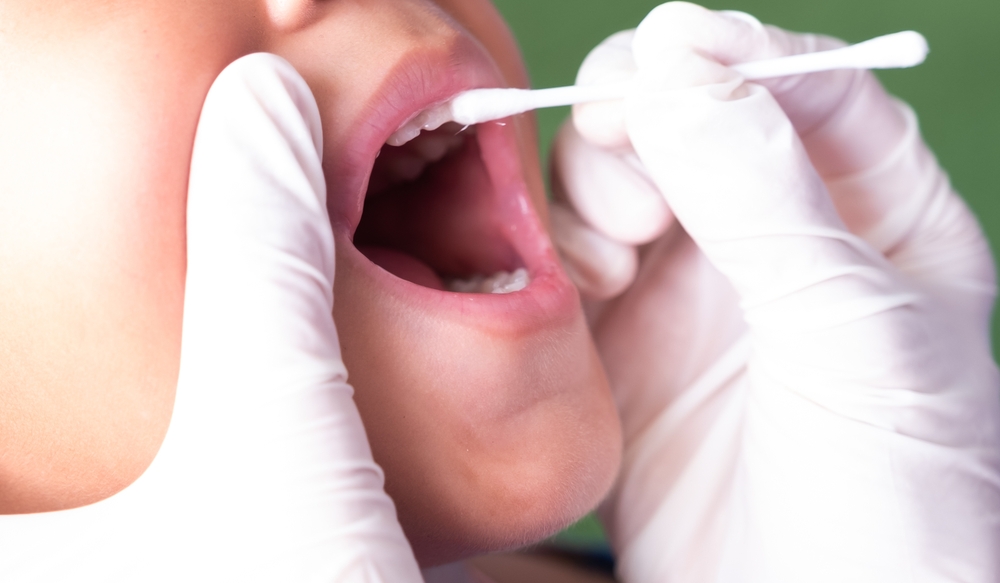Fluoride treatment at the dentist involves applying fluoride gel or varnish to the teeth to strengthen tooth enamel and prevent tooth decay. It is essential because fluoride helps to remineralize the teeth, making them more resistant to acid attacks from plaque bacteria and sugary foods.
A beautiful smile is the first thing that people notice when they meet you. It can light up a room and make you feel confident. But to maintain those pearly whites, it is essential to take care of your oral health. One way to do that is by getting topical fluoride treatment. Fluoride is a mineral that helps in strengthening teeth and preventing cavities. In this blog post, we will discuss everything you need to know about fluoride treatments. We will delve into the procedure, benefits, frequency, effectiveness in cavity prevention, and potential side effects. Whether you are an adult or have children, learn how topical fluoride treatment can benefit your dental health and give you a bright smile.
Understanding Fluoride and Its Importance in Dental Health
Fluoride is crucial in dental health by strengthening tooth enamel and preventing decay. This naturally occurring mineral is commonly used in topical fluoride treatments and is scientifically proven to reduce the risk of cavities and aid in disease control. Fluoride is found in many foods and water sources and added to toothpaste for oral health benefits. The American Dental Association strongly recommends its use for maintaining optimal oral health. By incorporating fluoride into your oral care routine, you can help protect your teeth from decay and maintain strong, healthy enamel.
The Role of Fluoride in Preventing Tooth Decay
Fluoride treatment plays a crucial role in safeguarding teeth against decay and cavities. It effectively remineralizes tooth enamel, reversing the early stages of decay. By preventing demineralization, fluoride ensures tooth enamel doesn’t lose essential minerals such as phosphate. Regular exposure to fluoride also helps reduce plaque buildup and inhibits acid production. Applying fluoride varnish, gel, or foam directly to the teeth ensures targeted fluoride delivery. This systematic approach aids in maintaining optimal oral health and preventing tooth decay, along with practicing good oral hygiene and a healthy diet. Overall, fluoride treatment provides a valuable defense mechanism for preserving the health and integrity of our teeth.
Benefits for Children and Adults
Children and adults can both benefit from topical fluoride treatment. For children with teeth still developing, fluoride treatment can help promote strong and healthy teeth, including adult ones. Young children need to have early exposure to fluoride to prevent tooth decay as their first teeth come in. Adults with dental insurance can also receive fluoride treatment as part of their preventive dental care. This treatment provides an extra layer of protection, complementing good oral hygiene practices. Topical fluoride treatment can benefit individuals of all ages, promoting dental health and reducing the risk of cavities.
Handling Tooth Discoloration and Allergic Reactions
Tooth discoloration caused by fluorosis can be effectively managed through professional teeth whitening treatments. It is important to seek dental attention immediately if you experience any allergic reactions to fluoride treatment or as soon as your child’s first tooth erupts. This protects a child’s teeth from cavities and can prevent tooth discoloration. Dental professionals are well-equipped to recommend fluoride-free alternatives for individuals at a higher risk of allergies. Personalized treatment plans consider individual oral health needs and potential side effects. Managing tooth discoloration and allergies requires professional dental advice and guidance. By working closely with your dentist, you can address these concerns and maintain optimal oral health.
What is the Recommended Frequency for Fluoride Treatments?
The frequency of fluoride treatments varies based on individual oral health needs. Dental professionals may suggest treatments every 3, 6, or 12 months, with the recommended frequency being determined by a consultation with a healthcare provider. High-risk individuals, such as those with dry mouth, may need more frequent treatment, including a professional fluoride treatment at your dentist’s office or fluoride mouth rinses or gels. Regular dental check-ups help determine the appropriate frequency for professional fluoride treatments.
How Effective are Fluoride Treatments in Cavity Prevention?
Fluoride treatments are highly effective in preventing cavities and tooth decay. Numerous scientific studies, including a systematic review, have consistently demonstrated their effectiveness, particularly in preventing cavities in both primary and permanent teeth. When combined with proper oral hygiene, fluoride treatments promote strong teeth and healthy gums. Regular treatments are a proactive approach to cavity prevention, and dental professionals can assess their effectiveness and adjust recommendations accordingly.
Conclusion
In conclusion, topical fluoride treatment is a valuable tool in maintaining optimal dental health and preventing tooth decay. Whether you’re a child or an adult, this procedure can provide numerous benefits, such as strengthening enamel and reducing the risk of cavities. It’s important to note that while fluoride treatment is generally safe, there can be some side effects, such as tooth discoloration or allergic reactions. However, these can be managed and are outweighed by the long-term benefits. The recommended frequency of fluoride treatments may vary depending on individual circumstances, so it’s best to consult your dentist. Overall, with regular dental visits and proper oral care, fluoride treatment can significantly contribute to a healthy and cavity-free smile.




